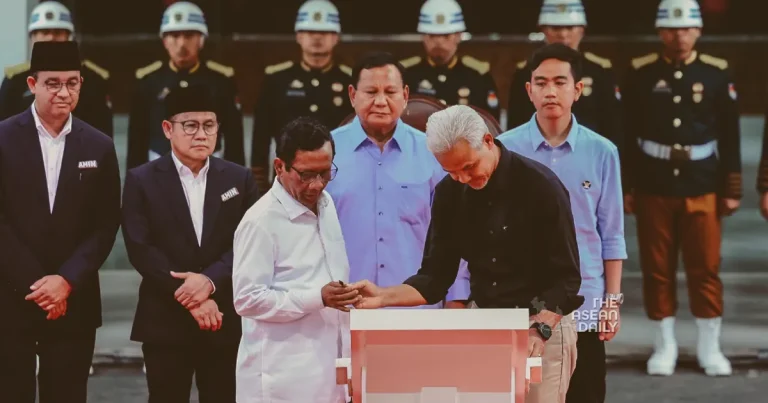19-12-2023 (JAKARTA) Indonesia’s Financial Transaction Reports and Analysis Centre (PPATK) has unearthed suspicious transactions amounting to trillions of rupiah linked to the upcoming presidential and legislative elections, casting a shadow over the country’s political landscape. The revelations come as over 204 million Indonesians gear up for what is touted as the world’s largest single-day elections on Feb 14, 2024.
The trillions of rupiah in question, approximately US$64.4 million for each trillion, implicate thousands of individuals with affiliations to various political parties, according to PPATK head Ivan Yustiavandana. The financial intelligence agency identified potential illicit payments, raising concerns about the integrity of the electoral process.
The suspicious transactions were detected in the special campaign fund accounts (RKDK) of political parties, designed to finance election campaigns. The discrepancy arose as PPATK observed stagnant or flat activities in the RKDKs, while significant transactions occurred in other accounts, indicating potential irregularities.
President Joko Widodo has instructed law enforcement agencies to investigate the findings, emphasizing adherence to existing rules and legal procedures, reported Tempo.
The discovery sheds light on the significant influence of money in Indonesia’s elections, as noted by anti-corruption official Amir Arief from the Corruption Eradication Commission (KPK). Research from the KPK reveals that success in legislative and regional head elections is largely determined by financial resources, with money being used to buy votes, mobilize campaign machinery, and pay political dowries.
Political dowry, commonly known as “boat money,” involves payments made by individuals to political parties to stand as their representatives in parliamentary elections. The amount varies between 1 billion rupiah (US$64,406) and 12 billion rupiah, exposing a complex web of financial dynamics within the political landscape.
The suspicious transactions spotlight flaws in the system, according to election law expert Titi Anggraini. She notes that legislative candidates receive, manage, and spend money without adhering to RKDK requirements, rendering the process a formality rather than a tool for accountability.
The PPATK has officially notified both the General Elections Commission (KPU) and the Election Oversight Body (Bawaslu) about the irregular transactions. Bawaslu chairman Rahmat Bagja confirmed that the reports are under review, with potential violations to be conveyed to relevant parties, including law enforcement agencies.
Experts call for proactive measures from Bawaslu in preventing money politics and emphasize the need for stringent oversight of campaign finance rules. Political parties are urged to ensure compliance with reporting regulations, penalizing those who deviate from established norms.
As the investigation unfolds, candidates and their parties respond to allegations, with calls for transparency and adherence to legal standards in the electoral process. The outcome of this inquiry could significantly impact the credibility and fairness of Indonesia’s upcoming elections.




